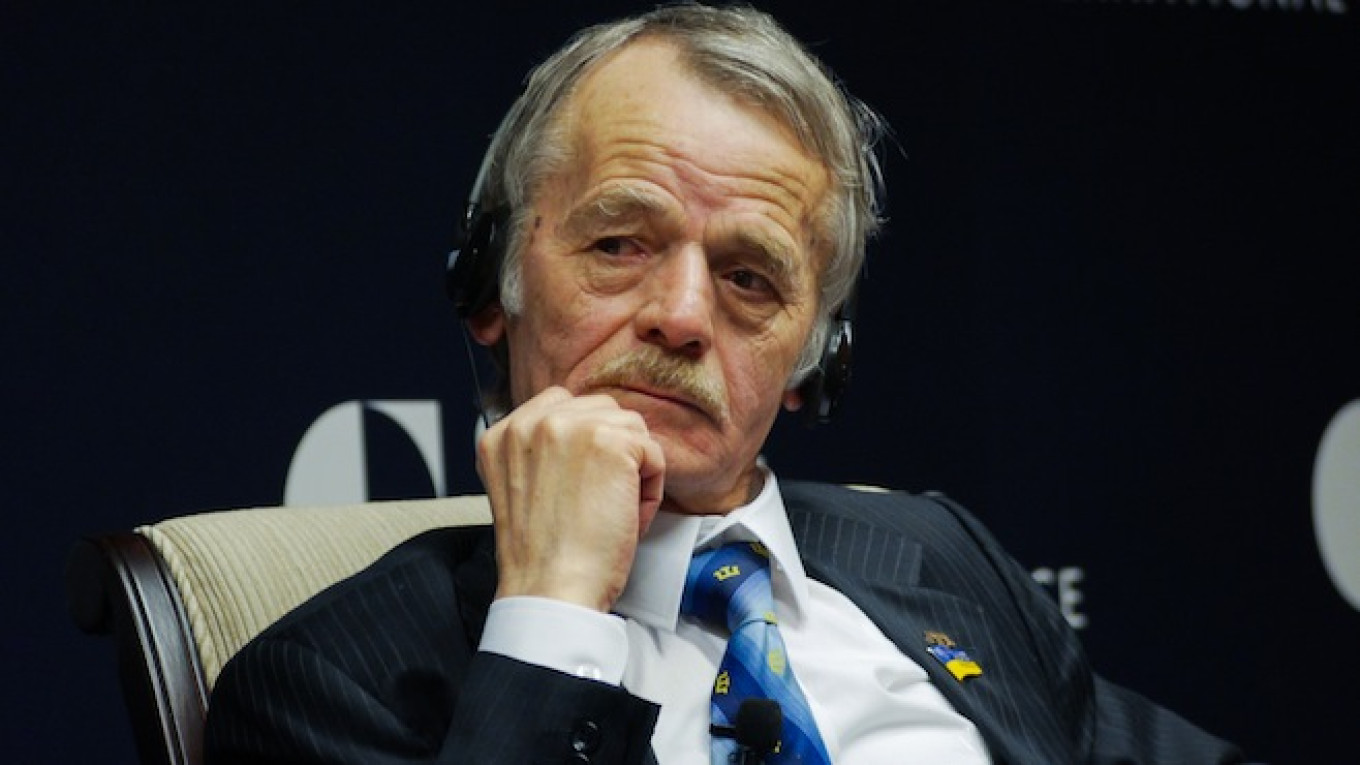KIEV, Ukraine — A leading figure in the Crimean Tatar minority has been barred by Russia from returning to the peninsula following its annexation by Moscow, the Tatar community's assembly said on Tuesday.
In an online statement, the Mejlis of the Crimean Tatar People said Mustafa Dzhemilev, a member of the Ukrainian parliament and the former chairman of the Mejlis, had been handed a notice banning him from Russia for five years as he crossed back to mainland Ukraine after a weekend in Crimea.
It came a day after Russian President Vladimir Putin made a gesture of goodwill toward the Crimean Tatars, many of whom wanted to remain Ukrainian citizens, by signing a decree ruling their mass deportation by Stalin in the 1940s was illegal and guaranteeing autonomous rights for them and other minorities.
A Turkic-speaking, Muslim community, long present on the Black Sea, Tatars make up about 12 percent of Crimea's 2 million population. Deported to central Asia on suspicion of aiding Nazi German invaders, they began to return in the 1980s and in large numbers after the collapse of the Soviet Union in 1991.
The Mejlis was recognized by the Ukrainian state in the 1990s as a representative body for the Tatars. Dzhemilev, 70, was its chairman from its foundation in 1991 until last year.
The Mejlis statement said the current deputy chairman, Aslan Omer Kyrymly, was also handed a similar banning notice.
There have been tensions between Tatars in Crimea and pro-Russian separatists. On Monday, the Mejlis said unidentified men in camouflage forced their way into its building, which was largely empty for a holiday, and took down a Ukrainian flag.
See related story:
A Message from The Moscow Times:
Dear readers,
We are facing unprecedented challenges. Russia's Prosecutor General's Office has designated The Moscow Times as an "undesirable" organization, criminalizing our work and putting our staff at risk of prosecution. This follows our earlier unjust labeling as a "foreign agent."
These actions are direct attempts to silence independent journalism in Russia. The authorities claim our work "discredits the decisions of the Russian leadership." We see things differently: we strive to provide accurate, unbiased reporting on Russia.
We, the journalists of The Moscow Times, refuse to be silenced. But to continue our work, we need your help.
Your support, no matter how small, makes a world of difference. If you can, please support us monthly starting from just $2. It's quick to set up, and every contribution makes a significant impact.
By supporting The Moscow Times, you're defending open, independent journalism in the face of repression. Thank you for standing with us.
Remind me later.


